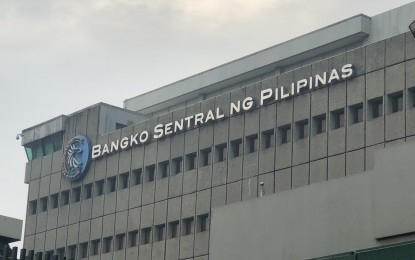
MANILA – The need to manage digital and physical currency along with ensuring an inclusive payment system led to the creation of a new sector in the central bank, which is provided for under its Charter amendment.
In a virtual briefing Wednesday, Bangko Sentral ng Pilipinas (BSP) Governor Benjamin Diokno said the newly-established Payments and Currency Management Sector (PCMS) will be led by Deputy Governor Mamerto Tangonan.
“The sector shall also ensure a well-functioning payment and cash ecosystem that supports long-run economic growth,” he said.
Diokno said creation of PCMS is in line with the central bank’s Digital Payments Transformation Roadmap for 2020-23 that targets to provide an efficient, safe, and efficient payments ecosystem.
“With PCMS, the BSP further promotes a safe, inclusive, and innovative payments and currency ecosystem for the benefit of Filipinos,” he added.
The BSP said Tangonan has more than 28 years of experience in digital and traditional financial services, telecommunications, technology, financial inclusion, and consulting services.
Before this stint at the BSP, he led a six-year program funded by the United States Agency for International Development (USAID) for E-PESO Activity, a bilateral initiative aimed to increase electronic payments (e-payments) in the Philippines in a bid to have a more inclusive economic growth.
During the same briefing, Tangonan said studies have shown that digital payments help boost economic growth by reducing inequality.
“Cash and digital payments will co-exist but BSP’s goal is towards a cash-lite society,” he said, citing this needs closer coordination between government agencies and the private sector.
Meanwhile, PCMS is the fourth sector of the BSP headed by a Deputy Governor.
Under the amended BSP Charter, the central bank can have five Deputy Governors.
Diokno said they continue to monitor developments and study whether there is an immediate need to form another sector to be headed by another Deputy Governor.
In terms of the impact of a cash-lite economy, studies have shown that this boosts gross domestic product (GDP) of mature economies by one percentage point while it is higher at more than three percentage points for emerging economies, he said.
Diokno said financial inclusion means having more people becoming part of the formal financial system and more people, especially those belonging to the micro, small and medium enterprises (MSMEs), benefiting from financial products that boost their livelihood.
Citing Philippine Statistics Authority (PSA) data, Diokno said MSMEs account for about 99.5 percent of businesses in the country.
“When this important segment goes digital and begins to reap the benefits of cost savings, transparency, and easier access to finance, they become more empowered and active contributors to economic growth,” he added. (PNA)
